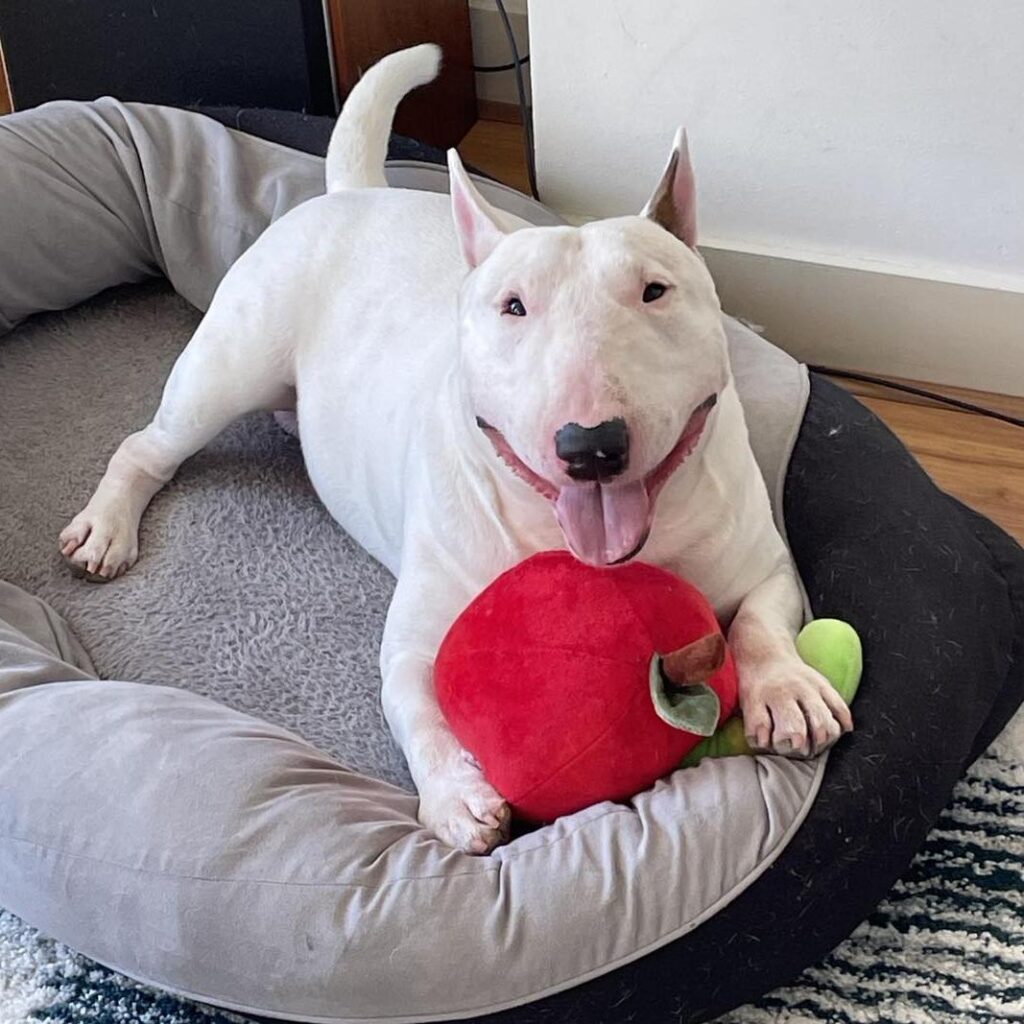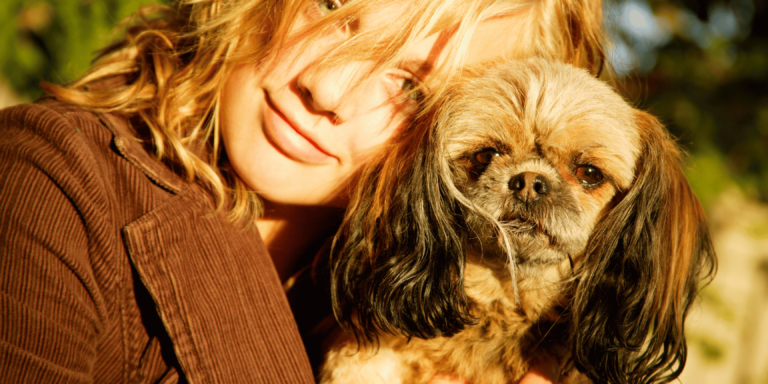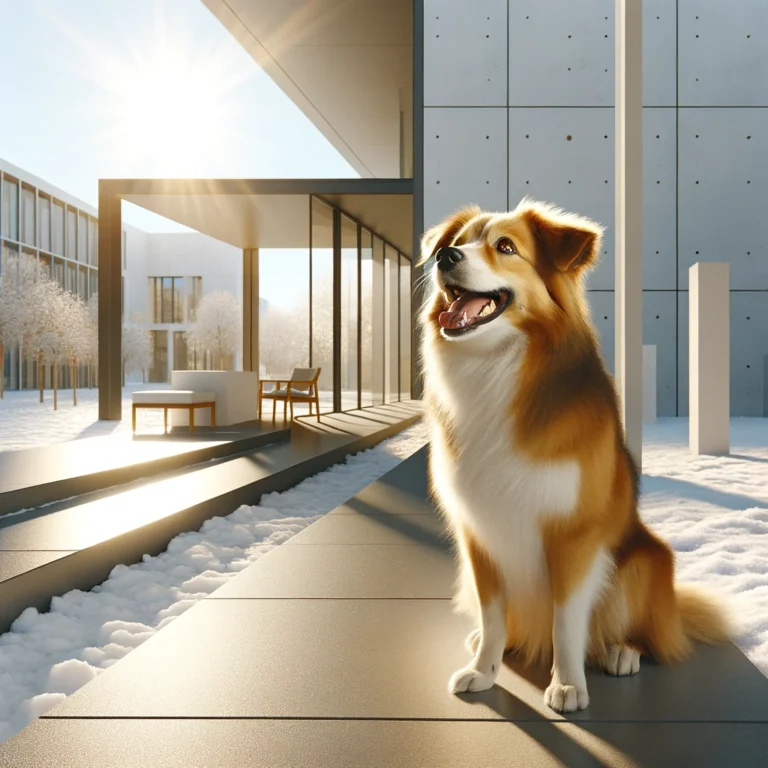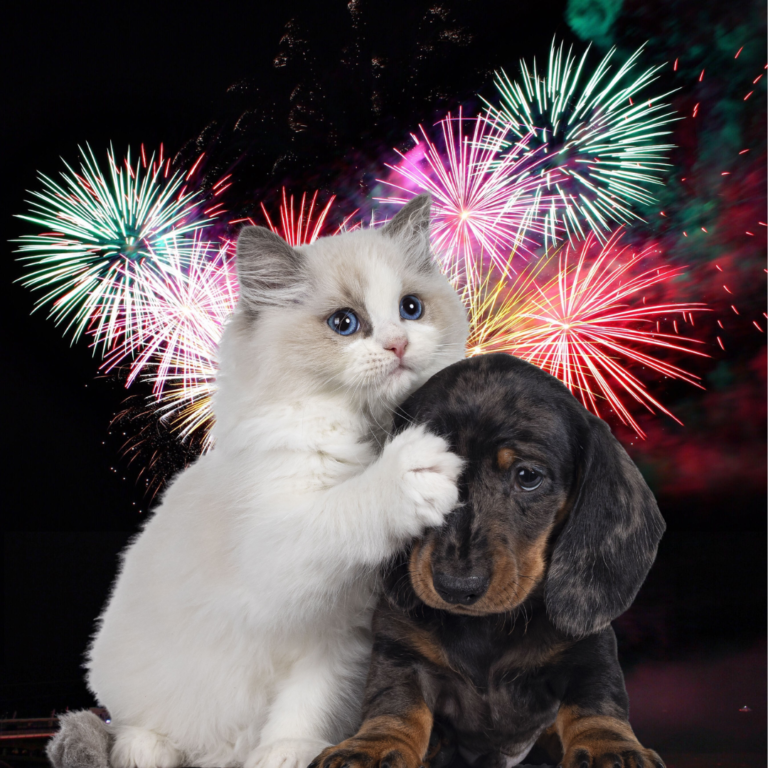What are Miniature Bull Terriers?
Miniature Bull Terriers are a specialized breed of Bull Terrier, developed through selective breeding to create a smaller version of the classic Bull Terrier. Essentially, they are a scaled-down version, featuring the same distinctive traits: a muscular build, a unique profile with upright ears, and a signature egg-shaped nose. These dogs are known for their robust nature, high energy, bravery, intelligence, and playful demeanor. Miniature Bull Terriers are popular among dog enthusiasts and can make excellent companions for active families.
Here’s what’s known about the Miniature Bull Terrier:
The Miniature Bull Terrier originated in 19th century England through the breeding of smaller Bull Terriers. Initially bred for dog fighting, they later became popular as companion animals.
Miniature Bull Terriers have a muscular build with a distinctive profile, upright ears, and a cone-shaped nose. They are compact and strong, with a sleek, short coat that comes in various colors.
These dogs are known for their bravery, intelligence, and playful nature. They are loyal to their owners and often have a strong sense of humor. However, they can also be stubborn and require consistent training.
Generally, Miniature Bull Terriers are robust dogs, but they can be prone to certain genetic conditions like patellar luxation, heart issues, and kidney problems. Regular veterinary check-ups are crucial to monitor their health.
The average life expectancy of a Miniature Bull Terrier is between 11 and 14 years, depending on factors like healthcare, diet, and lifestyle. With proper care and a healthy lifestyle, they can lead long and happy lives.
Living with a Miniature Bull Terrier
Here’s what other dog owners are saying
Miniature Bull Terriers are a fascinating breed, known for their unique appearance and lovable personality. These charming dogs stand out with their muscular build and distinctive facial features. As part of our Petbnb community, we've interviewed many Miniature Bull Terrier owners to bring you authentic insights into these wonderful dogs. Learn more about their traits, care needs, and why they are so beloved!
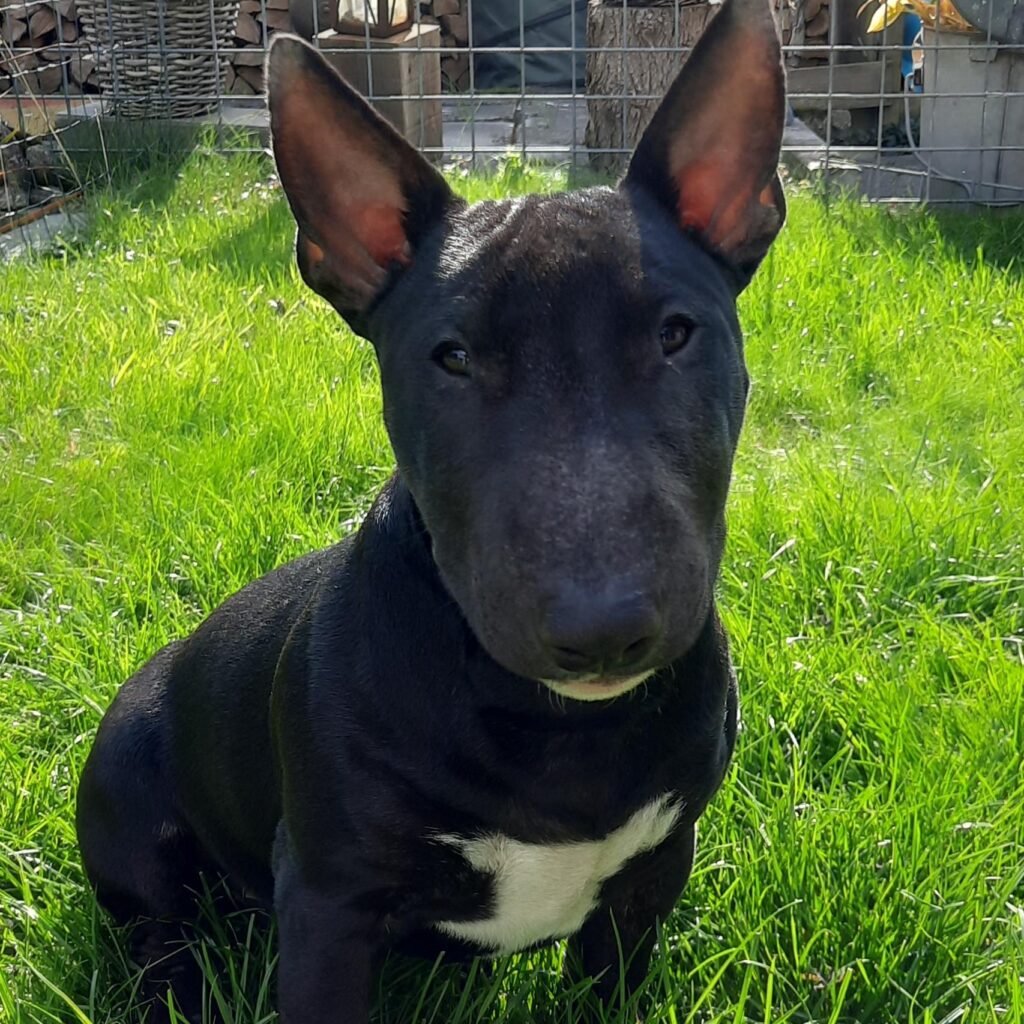
The Benefits of Miniature Bull Terriers
Miniature Bull Terriers combine many positive qualities in a small package. Their compact size makes them perfect for apartments and smaller homes. With their energetic temperament, they are great companions for active families who enjoy spending time outdoors. Their intelligent learning ability makes them ideal candidates for obedience training. Their exceptional loyalty creates strong bonds with their owners. Despite their size, they are sturdy and adaptable to various environments. Well-socialized Miniature Bull Terriers often make excellent playmates for children and are friendly with other pets. Their adorable appearance and distinctive look complete the picture, making them an appealing companion.
A dog with personality, a clown, stubborn yet resilient. Incredibly cheerful and can handle anything and anyone.
How do Miniature Bull Terriers interact with children and other people?
Our Miniature Bull Terrier is very friendly with people, children, and other dogs. He’ll sit down and won’t move an inch until he gets a hug or a pet from someone. Then he wags his tail so hard it looks like it might fall off. In the city or at a market, he can sometimes be a bit annoying, haha. But we are patient and don’t rush him.

What can Miniature Bull Terriers eat?
Miniature Bull Terriers are versatile eaters and can enjoy a variety of foods. It’s important to choose high-quality dog food that is specifically tailored to their needs. This includes protein-rich meals that match their active lifestyle. Many Miniature Bull Terriers also enjoy fresh fruits and vegetables as a healthy addition to their diet. However, certain foods should be avoided, such as chocolate, onions, and garlic, which can be toxic to dogs. Before offering human foods, it’s advisable to consult with a veterinarian to ensure they are safe for Miniature Bull Terriers.
We avoid chicken, but that's not based on anything specific. As a puppy, he suddenly didn’t want to eat raw chicken anymore, and I know they can be allergic to it. Now he gets dry food 3 times a week and raw meat 4 times a week, which he responds to very well. But of course, this varies for every dog.
Our Bully turned out to be allergic to chicken.
What activities does the Miniature Bull Terrier prefer?
The Miniature Bull Terrier is an active dog that loves to stay busy. Their favorite activities include walks, outdoor play, and solving puzzles. This energetic breed enjoys staying active and tackling challenges. Agility training, dog sports, and even simple obedience exercises are great ways to keep the Miniature Bull Terrier physically and mentally stimulated. Since they are very intelligent, their activities should also cater to their curiosity and desire to explore.
A Bully has bursts of energy that we channel through walks and (mental) games at home. On the other hand, our Bully can also be quite lazy. His favorite activities are tug-of-war, Bully rodeo, and scent games.
What type of training is suitable for Miniature Bull Terrier puppies?
For the optimal development of your Miniature Bull Terrier puppy, a few essential training steps are crucial:
Keep training and rules consistent so that your puppy has clear expectations and feels secure.
Reward desired behavior with praise, treats, or toys to reinforce it and build motivation.
Introduce your puppy to different social situations early and in a controlled manner to prevent fear and uncertainty, and to encourage balanced behavior.
Consistency is key when training Miniature Bull Terrier puppies. Reward-based games are an effective way to shape their behavior. But most importantly, give them plenty of love and affection.
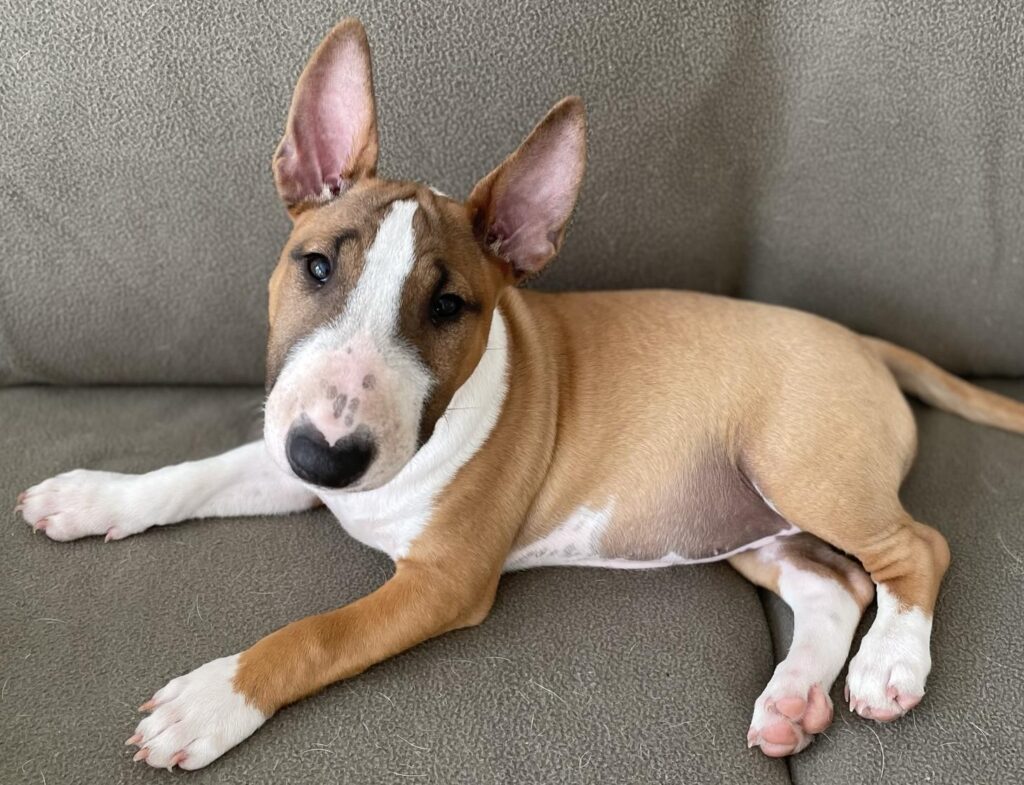
Tips Before Adopting a Miniature Bull Terrier
„Beschäftige dich gründlich mit der Rasse und besuche mehrere Züchter (besuche auf jeden Fall mindestens 2 !!!) und besuche eventuell eine Ausstellung. Mach keinen Spontankauf, denn dein Bully wird für Jahre dein Begleiter sein.“ – Gera
„Wenn der Bully eine solide Erziehung genossen hat, braucht man nicht viel zu beachten. Es ist jedoch wichtig, den Hintergrund zu überprüfen und bei der Platzierung vorsichtig zu sein. Zum Beispiel sollte man ihn nicht in eine Familie bringen, wenn er eine schwierige Vergangenheit hat“ – Joost


